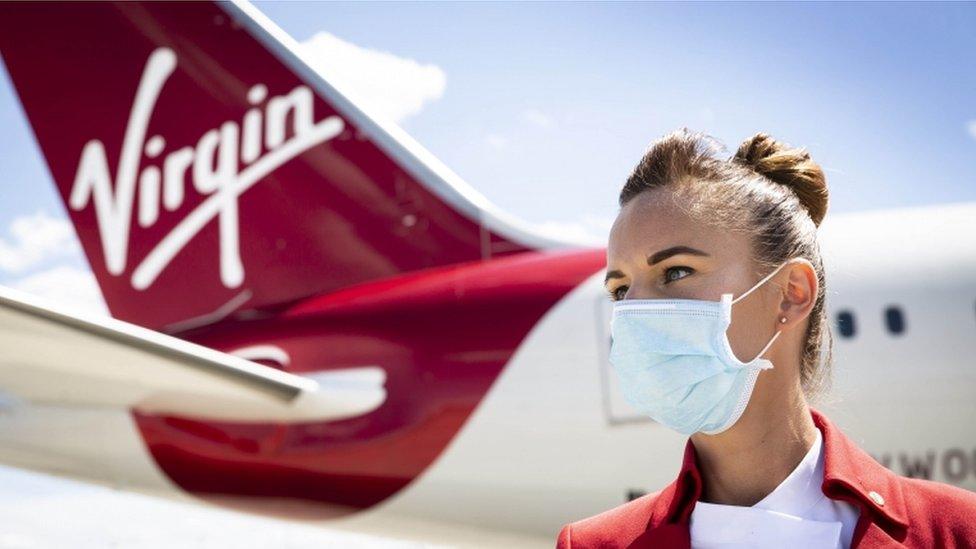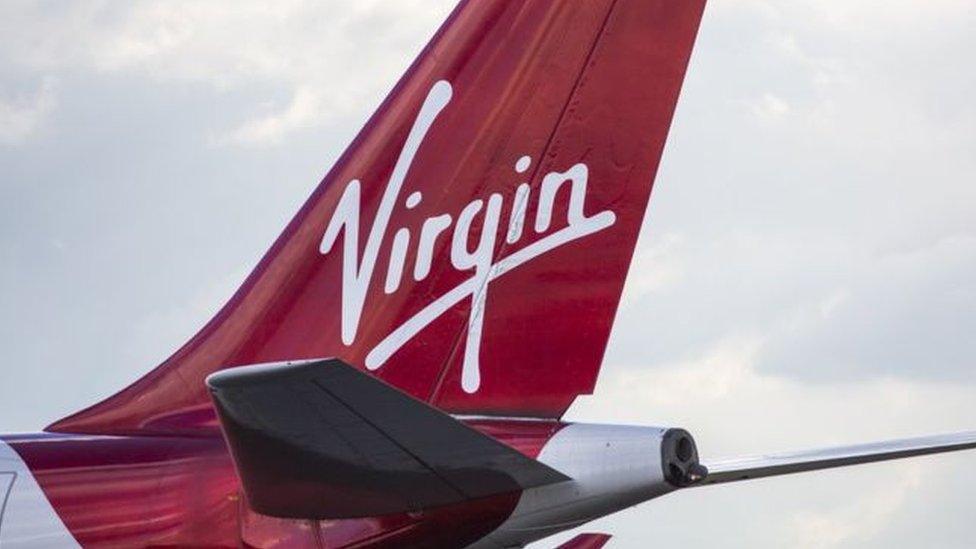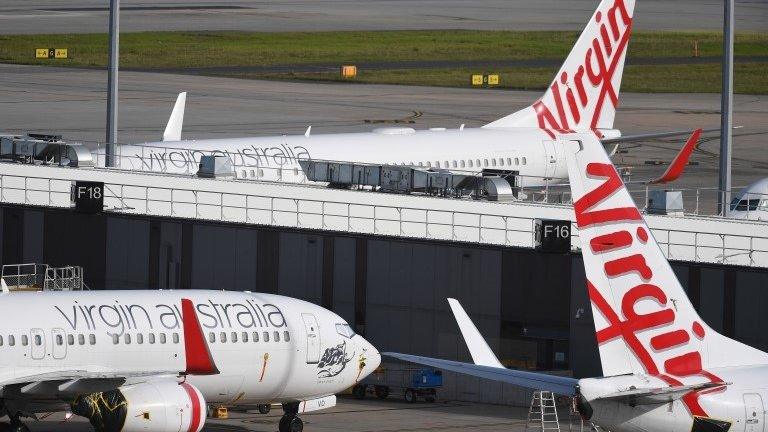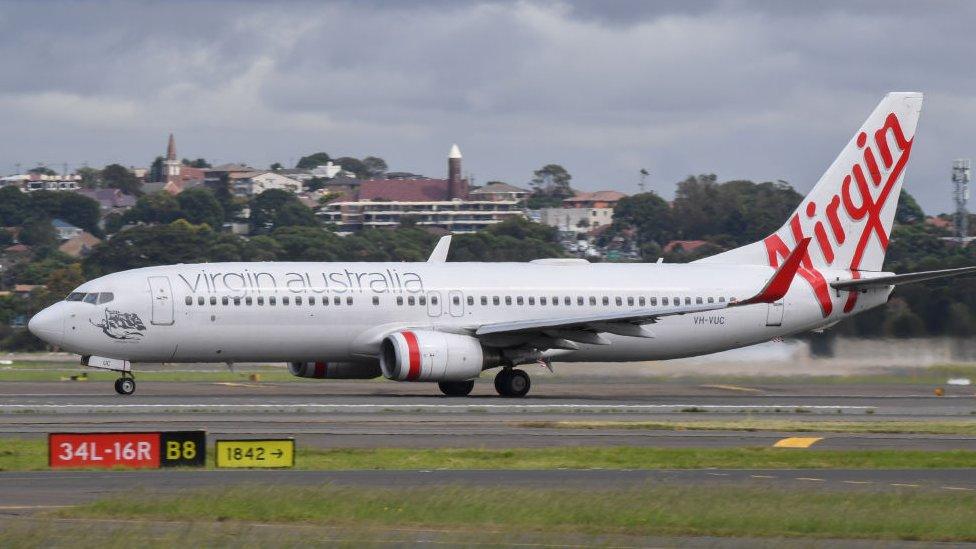Virgin Atlantic warns it is running out of money
- Published

Sir Richard Branson's Virgin Atlantic could run out of cash next month if creditors do not approve a £1.2bn rescue deal, a UK court has heard.
The airline is "fundamentally sound" but a restructuring and fresh injection of money is critical to securing its future, Virgin's lawyers said.
The plans need approval from creditors under a court-sanctioned process.
As part of that process Virgin Atlantic is also seeking protection under chapter 15 of the US bankruptcy code.
That enables a foreign debtor to shield assets in the country.
'Critical levels'
Like other airlines, Virgin Atlantic's finances have been hit hard by the collapse in air travel due to the pandemic.
Last month, the company agreed a rescue deal worth £1.2bn ($1.6bn) to secure its future beyond the coronavirus crisis.
The court in London heard that the airline's cash flow would drop to "critical levels" by the middle of next month and it would "run out of money altogether" by the week beginning 28 September.
David Allison QC, for Virgin Atlantic, told Mr Justice Trower in written submissions that the group had "a fundamentally sound business model which was not in any problems at all before the Covid-19 pandemic".
"Passenger demand has plummeted to a level that would, until recently, have been unthinkable," he said. "As a result of the Covid-19 pandemic, the group is now undergoing a liquidity crisis."
Mr Allison said that without a "solvent recapitalisation", including an injection of new money, Virgin Atlantic's directors would have "no choice" but to place the company into administration in mid-September 2020 in order to wind down the business and sell any assets, where possible.
He said the restructuring needed to be sanctioned by early September. Mr Justice Trower gave the go-ahead for a meeting of creditors on 25 August.
In a related procedural move, Virgin Atlantic filed for US bankruptcy protection, saying it had negotiated a deal with stakeholders "for a consensual recapitalization" that will get debt off its balance sheet and "immediately position it for sustainable long-term growth".
Virgin Atlantic said in a statement on Wednesday that it continues to operate its limited flight schedule, adding: "With support already secured from the majority of stakeholders, it's expected that the Restructuring Plan and recapitalisation will come into effect in September. We remain confident in the plan."
Under the airline's restructuring plan, Sir Richard's Virgin Group will inject £200m, with additional funds provided by investors and creditors.
The billionaire Virgin boss had a request for UK government money rejected, leaving the airline in a race against time to secure new investment.
In May, Virgin Atlantic, which is 51% owned by Virgin Group and 49% by US airline Delta, announced that it would cut more than 3,000 jobs in the UK and close its operation at Gatwick airport.
Virgin Australia cuts
Meanwhile, Virgin Australia's new owner, the US private equity group Bain Capital, said it will cut 3,000 jobs, which is about a third of the airline's employees.
The turnaround plan for Australia's second largest airline will also see it retire the budget brand Tigerair.
"Working with Bain Capital, we will accelerate our plan to deliver a strong future in a challenging domestic and global aviation market," Virgin Australia's chief executive Paul Scurrah said.
A Virgin Australia flight attendant says goodbye on a final international flight
In April, Virgin Australia went into voluntary administration, making it Australia's first big corporate casualty of the coronavirus pandemic.
The following month it was bought by Bain Capital, which said it supported the airline's current management team and its turnaround plan for the business.
Bain also promised a "significant injection of capital" that would help Virgin Australia recapitalise and retain thousands of jobs.
Carriers around the world are struggling as they deal with the severe plunge in air travel caused by the coronavirus pandemic.
The International Air Transport Association warned in June that the slump will drive airline losses of more than $84bn (£64bn) this year.
- Published30 July 2020

- Published14 July 2020

- Published5 May 2020

- Published21 April 2020

- Published26 June 2020
